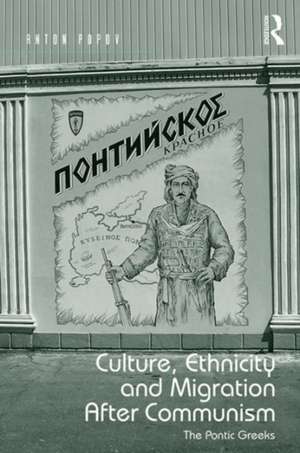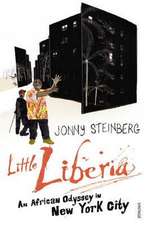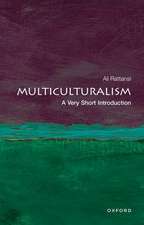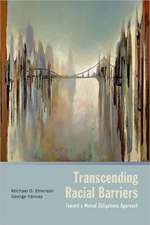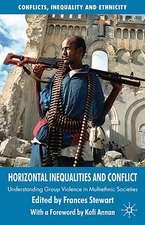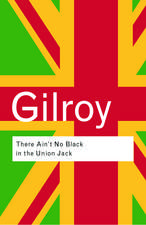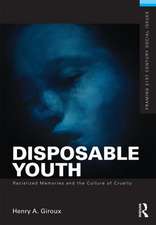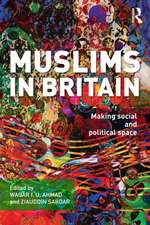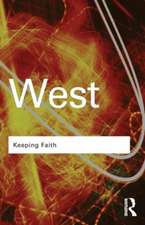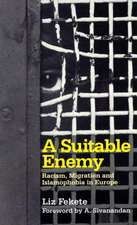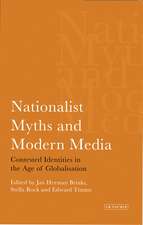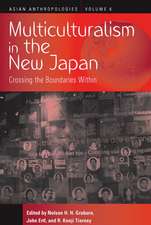Culture, Ethnicity and Migration After Communism: The Pontic Greeks
Autor Anton Popoven Limba Engleză Hardback – 24 iun 2016
Anton Popov draws upon ethnographic research conducted among Greek transnational migrants living on the Black Sea coast and in the North Caucasus regions of Russia who have become involved in extensive cross-border migration between the former Soviet Union (the Russian Federation, Kazakhstan and Georgia) and Greece (as well as Cyprus). It is estimated that more than 150,000 former Soviet citizens of Greek origin have resettled in Greece since the late 1980s. Yet, many of those who emigrate do not cut their connections with the home communities in Russia but instead establish their own transnational circuit of travel between Greece and Russia.
This study demonstrates how migrants employ their ethnicity as symbolic capital available for investment in transnational migration. Simultaneously they rework their practices of family networking, property relations and political participation in a way which strengthens their attachment to the local territory. The findings presented in the book imply that the social identities, economic strategies, political practices and cultural representation of the Russia’s Pontic Greeks are all deeply embedded in the shifting social and cultural landscape of post-Soviet Russia and extensively influenced by the global movement of ideas, goods and people.
| Toate formatele și edițiile | Preț | Express |
|---|---|---|
| Paperback (1) | 258.14 lei 6-8 săpt. | |
| Taylor & Francis – 30 iun 2020 | 258.14 lei 6-8 săpt. | |
| Hardback (1) | 820.32 lei 6-8 săpt. | |
| Taylor & Francis – 24 iun 2016 | 820.32 lei 6-8 săpt. |
Preț: 820.32 lei
Preț vechi: 1103.04 lei
-26% Nou
Puncte Express: 1230
Preț estimativ în valută:
156.97€ • 167.85$ • 130.88£
156.97€ • 167.85$ • 130.88£
Carte tipărită la comandă
Livrare economică 17 aprilie-01 mai
Preluare comenzi: 021 569.72.76
Specificații
ISBN-13: 9781472438430
ISBN-10: 1472438434
Pagini: 232
Dimensiuni: 156 x 234 x 18 mm
Greutate: 0.48 kg
Ediția:1
Editura: Taylor & Francis
Colecția Routledge
Locul publicării:Oxford, United Kingdom
ISBN-10: 1472438434
Pagini: 232
Dimensiuni: 156 x 234 x 18 mm
Greutate: 0.48 kg
Ediția:1
Editura: Taylor & Francis
Colecția Routledge
Locul publicării:Oxford, United Kingdom
Cuprins
Introduction: ethnography of transnational migrants at home
1. The cultural production of ‘transnational locals’ in theory and (of) practice
2. Ethnicity and migration after communism
3. History and the politics of representation: Greek ethnicity in southern Russia
4. Making sense of home and homeland: motivations and strategies for a transnational migrant circuit
5. Transnationalisation, materialisation, and commoditisation of ethnicity
6. The transnational family: re-shaping kinship and genealogy
7. A place called ‘home’: property ownership, legitimacy and local identification of migrants in home communities
8. Becoming Pontic Greeks; The Pontic Greek cultural revival: a global network and local concerns
9. Conclusion: local lives of transnational migrants
Bibliography
Index
1. The cultural production of ‘transnational locals’ in theory and (of) practice
2. Ethnicity and migration after communism
3. History and the politics of representation: Greek ethnicity in southern Russia
4. Making sense of home and homeland: motivations and strategies for a transnational migrant circuit
5. Transnationalisation, materialisation, and commoditisation of ethnicity
6. The transnational family: re-shaping kinship and genealogy
7. A place called ‘home’: property ownership, legitimacy and local identification of migrants in home communities
8. Becoming Pontic Greeks; The Pontic Greek cultural revival: a global network and local concerns
9. Conclusion: local lives of transnational migrants
Bibliography
Index
Notă biografică
Anton Popov is Lecturer in Sociology at Aston University, UK. His research interests include sociological and anthropological approaches to globalisation, migration, identity and transnationalism; ethnicity; youth culture; multiculturalism and minority rights.
Descriere
This study demonstrates how migrants employ their ethnicity as symbolic capital available for investment in transnational migration. Simultaneously they rework their practices of family networking, property relations and political participation in a way which strengthens their attachment to the local territory. The findings presented in the book imply that the social identities, economic strategies, political practices and cultural representation of the Russian Greeks are all deeply embedded in the shifting social and cultural landscape of post-Soviet Russia and extensively influenced by the global movement of ideas, goods and people.
